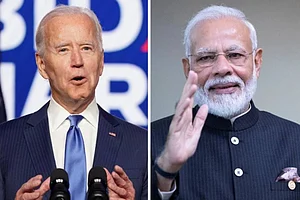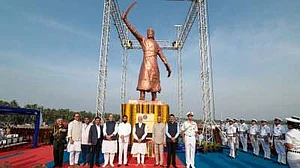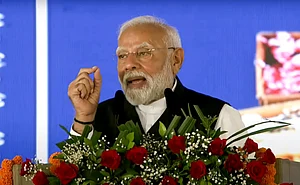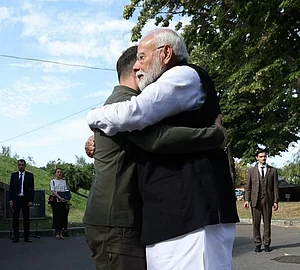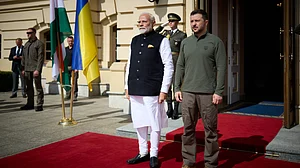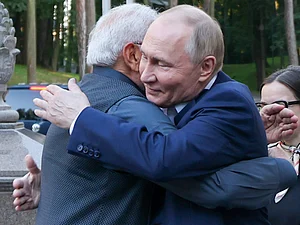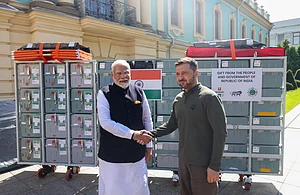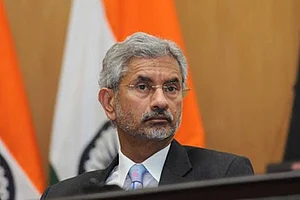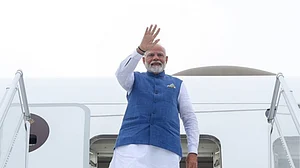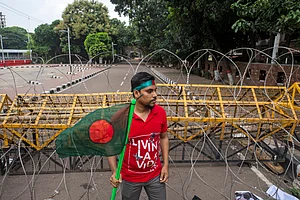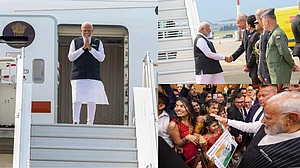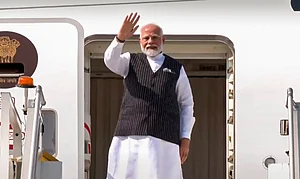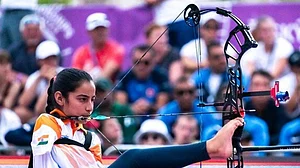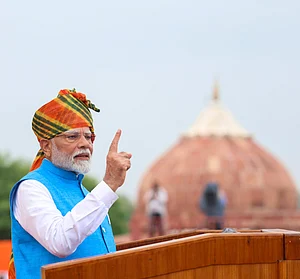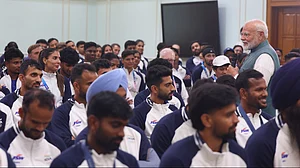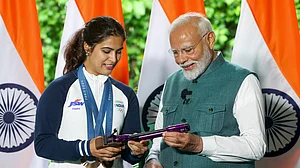
Name: Narendra Modi
Narendra Damodardas Modi is the 14th prime minister of India and has been spearheading the BJP-led Centre since 2014. Previously, from 2001 to 2014, he served as the chief minister of Gujarat. The prime-ministerial chapter of Narendra Modi's political career began in 2014 following a landslide victory of the BJP-led National Democratic Alliance (NDA) in the Lok Sabha elections. In 2019, his second term as the prime minister began after another big win for the NDA. With this, in 2020, PM Modi achieved the feat of being the fourth longest-serving prime minister of India.
During the emergency that lasted between 1975-1977, Modi was appointed general secretary of the ‘Gujarat Lok Sangharsh Samiti’ a RSS committee co-ordinating opposition to the emergency in Gujarat. Shortly afterward, the RSS was banned, and Modi traveled across the country in disguise to avoid arrest. He became involved in the printing of pamphlets opposing the government, sending them to Delhi, and organising demonstrations. During this period, Modi wrote a book in Gujarati-language titled Sangharsh Ma Gujarat.
Modi became an RSS regional organiser in 1978 overseeing activities in Surat and Vadodara, and in 1979 he went to work for the RSS in Delhi. He returned to Gujarat and in 1985, the RSS assigned him to the BJP. In 1987, Modi helped organise the BJP’s campaign in the Ahmedabad municipal election, which the party won comfortably. After L.K.Advani became president of the BJP in 1986, the RSS decided to place its members in important positions within the party. Modi was elected organising secretary of the BJP’s Gujarat unit later in 1987.
Modi rose within the party and was named a member of its National Election Committee in 1990, helping organise Advani’s Ram Rath Yatra in 1990. Modi took a brief break from politics in 1992 and returned in 1994, partly at the insistence of Advani, as party secretary. Modi’s electoral strategy was considered central to the BJP's victory in the 1995 state election. In November of that year, Modi was appointed BJP national secretary and transferred to New Delhi where he resumed responsibility for party activities.
The following year, Shanker Sinh Vaghela, a prominent leader from Gujarat defected to the Indian National Congress after losing his parliamentary seat in the Lok Sabha election. Modi, who was on the selection committee for the 1998 Gujarat Legislative Assembly election, favoured supporters of BJP leader Keshubhai Patel over those supporting Vaghela. His strategy was credited as central to the BJP winning an overall majority in the 1998 election. Modi was promoted to BJP general secretary in May of that year.
In 2001, Keshubhai Patel’s health was failing and the BJP national leadership sought a new candidate for the role of Chief Minister, and Modi was chosen as a replacement. Advani was concerned about Modi’s lack of experience in government. Modi declared an offer to become Patel’s deputy chief minister saying he was going to become fully responsible for Gujarat or not at all. In October 2001, Modi relaced Patel as the chief minister of Gujarat with the responsibility of preparing the BJP for the upcoming 2002 election. . Modi entered his first-ever electoral contest in a February 2002 by-election that won him a seat in the Gujarat state assembly. The BJP was again victorious in the 2007 state assembly elections. The party again won the 2012 polls, and both times, Modi returned as the Chief Minister of the state.
In September 2013, Modi was named the BJP’s candidate for prime minister ahead of the 2014 Lok Sabha election. Modi was a candidate for the Lok Sabha constituencies Varanasi and Vadodara. He won in both the constituencies. Modi the unanimously elected leader of the BJP, became the prime minister of India. To comply with the law prohibiting MP’s from representing more than one constituency, he vacated the Vadodara seat.
In 2018, Modi was named the BJP candidate for prime minister in the 2019 general elections. Modi contested the Lok Sabha election as a candidate for Varanasi and he won by a huge majority. Modi was unanimously elected the prime minister for the second time.
Modi became the first Indian Prime Minister to be born after the country’s independence. After the victory in the 2019 elections, Modi became the longest-serving non-congress Prime Minister.
